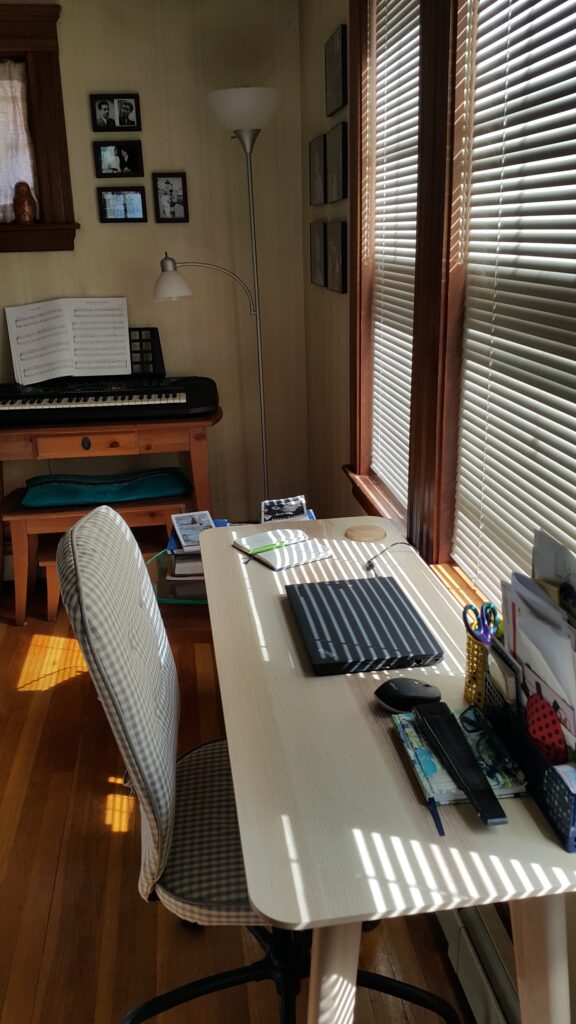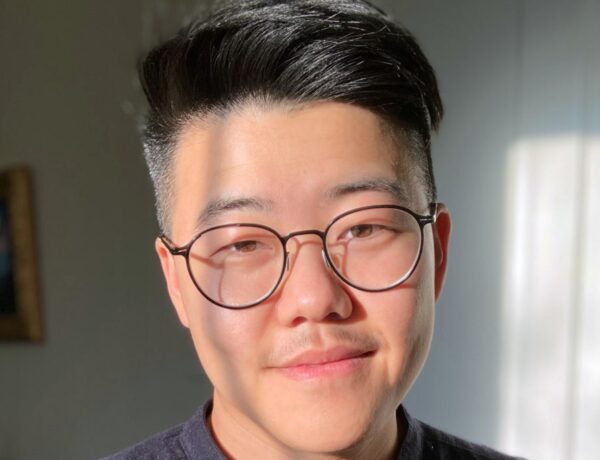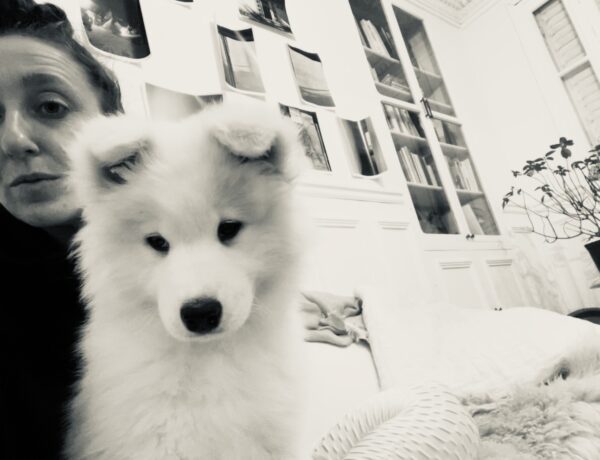Kip Wilson is the author of White Rose, a critically-acclaimed YA novel-in-verse about anti-Nazi political activist Sophie Scholl, and The Most Dazzling Girl in Berlin, a YA novel-in-verse about Hilde, an aspiring singer at a queer club in Berlin in 1932.
Kip holds a Ph.D. in German Literature and was the Poetry Editor at Young Adult Review Network (YARN) for five years before joining Voyage as Associate Editor in 2020. Her next YA novel-in-verse, One Last Shot, about Gerda Taro, the first female photojournalist killed on the front, is forthcoming from Versify in 2023.
Each week, we publish a new daily writing routine from a famous author. Subscribe to our newsletter so you don’t miss out!
Hi Kip, welcome to Famous Writing Routines, great to have you here with us today! Your new book, One Last Shot, is based on the life of Gerda Taro, the first female photojournalist killed on the front. What drew you to Gerda’s story, and how did you research and approach writing her character?
I first learned about Gerda Taro from the Google Doodle on her birthday (August 1, 2018). I’d never heard of her, and when I clicked on it, I learned she was a foreign photojournalist who covered the Spanish Civil War. I’m married to a Spaniard and have been drawn to this turbulent time in history since I first visited the country over twenty years ago, but the more I learned about Gerda, the more I loved her: her profoundly anti-fascist views, her multilingual and photography skills, her charm, her unrivaled confidence, and her perfectly balanced combination of femininity and toughness. I also loved how I could use my own German, Spanish, and French language skills when conducting research about her, since that helped me connect to her as a person.
Your novels-in-verse often feature strong female characters who challenge societal expectations and push for change. What draws you to these kinds of characters, and how do you balance their fictional stories with the real historical context they exist in?
Yes! This is so important to me. I went to an all-girls high school that was all about empowering young women, so I suppose it was only natural for me to focus on these sorts of young women in my writing. I try to keep as close as possible to the facts in their stories, including the real historical context, and only bring in fictional aspects when it comes to thoughts, emotions, and dialogue. I do my best to keep those fictional details as plausible as possible based on what’s known about the real people.
One Last Shot has received praise for its powerful message about resistance and female empowerment. How do you hope readers will respond to this message and what do you want them to take away from the book?
I’m so glad to hear this! This message is indeed very important to me, as it was for the heroines I choose to study, so I hope readers walk away with a real sense of what these young women accomplished—and what young women today can accomplish as well.
You have a Ph.D. in German literature, and your novels-in-verse have a strong historical component. What draws you to history, and how do you approach balancing historical accuracy with the creative liberties needed for fiction?
I’m from a family of history buffs, and I’ve been particularly drawn to the first half of the twentieth century when it comes to both history and literature. My first drafts are always a bit sparse, based mainly on the known facts, but then I tend to gradually fill the stories in with more emotion and fictional details as I get to know the protagonist and other characters more.
Do you struggle to stay focused while writing? You’re not alone! That’s why Famous Writing Routines recommends Freedom – the ultimate app and website blocker for Mac, Windows, Android, iOS, and Chrome. With over 2.5 million users, Freedom helps writers stay on task and avoid distractions. Get started for free today and reclaim your productivity!
You also have a background in poetry and have worked as a poetry editor in the past. How does poetry inform your writing process and approach to language, and what advice do you have for aspiring writers interested in poetry?
I absolutely love poetry as a reader, but as a verse novelist, I’d say the story is about equal to the form for me. How I write a book does matter, but the what—the story itself—is just as important, if that makes sense. As far as advice for aspiring poets and writers goes, I’d recommend being open to trying different elements in writing—format, genre, age category etc. You never know when you’ll stumble upon the magic.
Can you tell us about your writing routine? What does a typical day look like for you?
I am most definitely an early bird. In the past, I alternated between writing first thing in the morning at #5amwritersclub and going to the YMCA to swim. After the COVID lockdowns ended though, I decided I needed to devote my early mornings to swimming five days a week, so now I get in my early writing days on the weekend and then whenever else I can squeeze it in.
If you could have a conversation with any author throughout history about their writing routine and creative process, who would that person be?
I’m lucky that I’ve been able to have discussions like this with many of my favorite authors alive today! But if we go back through all of history, I’d have to say Rainer Maria Rilke. I wrote my dissertation about his poetry, and I’m particularly fascinated with how he drafted the Sonnets to Orpheus in an amazing and sudden flood of inspiration after some years of writer’s block.
I’d love to know about the books you’re reading at the moment. What have been some of your favorite recent reads?
Right now I’m reading a lot of research books for a project, but a few upcoming YA novels I absolutely loved are Spin by Rebecca Caprara, Wings in the Wild by Margarita Engle, and A Warning About Swans by R. M. Romero. All three of these books are in verse, and they are all marvelous!
What does your current writing workspace look like?
This is my writing workspace on one of my neater days. Sadly, there’s a huge pileup of books and papers surrounding the space now, but I love it best when it looks like this.

Affiliate disclaimer: Some links on this website are affiliate links. We may earn a small commission if you make a purchase through these links, but only promote products we truly believe in. We disclose affiliate links and give honest reviews.



No Comments